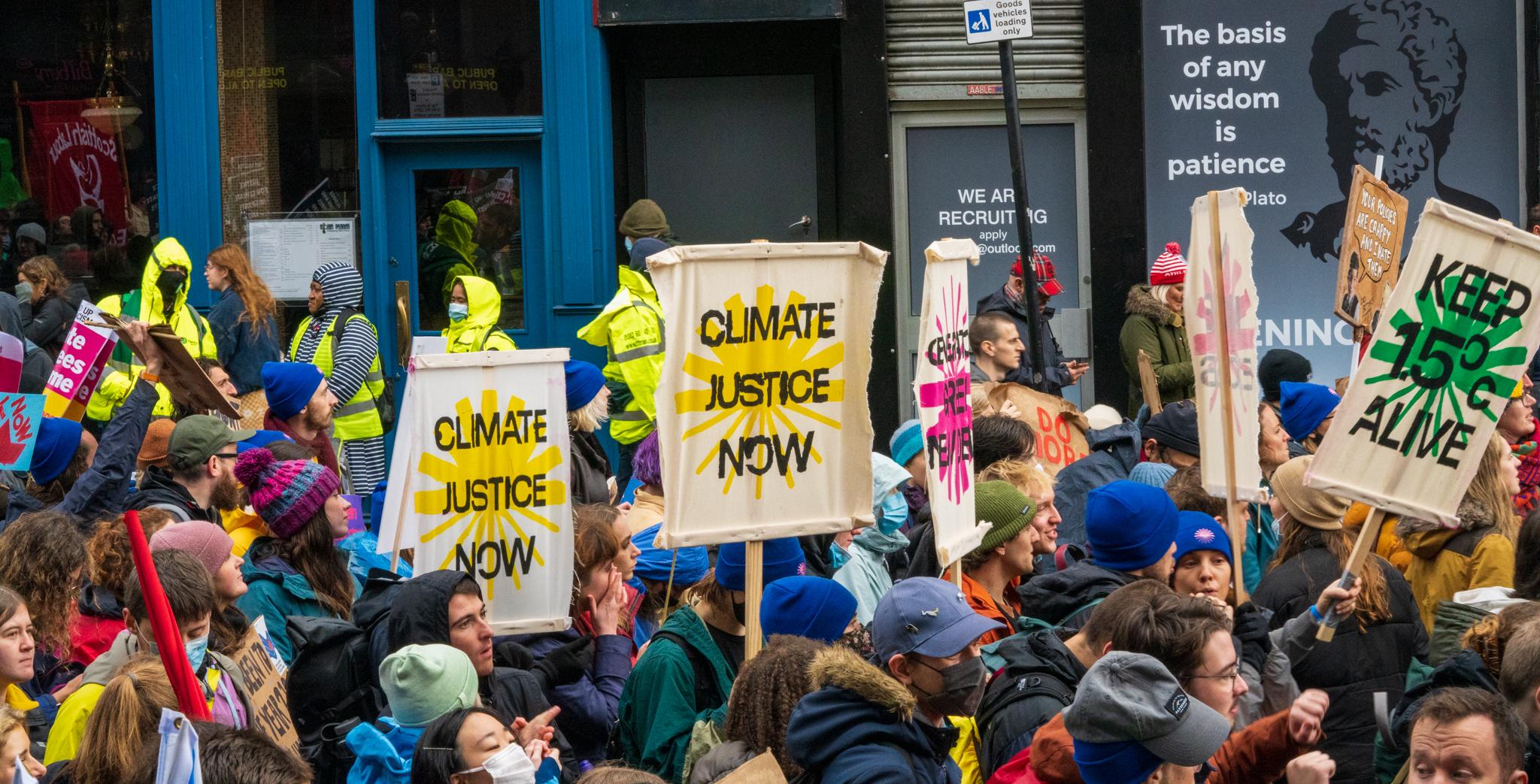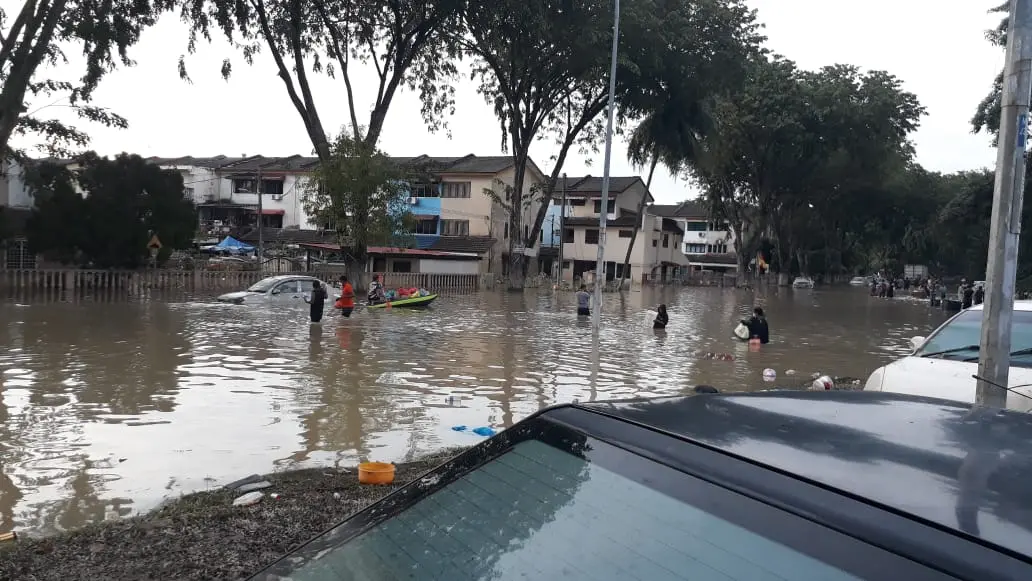
Several cars remain submerged in the yellow, muddy water. People carry their belongings in makeshift rucksacks and wade through the subsiding floods. In the foreground, a person navigates a boat loaded with belongings. This is Taman Sri Muda, a working-class neighborhood in the state of Selangor in Peninsular Malaysia that was heavily damaged by annual floods. This time, the floods were unusually strong and destructive.
According to France24, over 70,000 people were displaced due to flooding across Malaysia in December 2021. In fact, France24 reported that Selangor (the most densely populated state) was one of the worst affected areas.
Roy*, a 73-year-old retiree and his wife have been living in Taman Sri Muda, a suburb of the city Shah Alam in Malaysia, for the past 30 years. Before retirement, Roy used to work as a health officer under the Ministry of Human Resources.
Roy recounts how he had become accustomed to the annual monsoons and floods. “We just decided to stay on, thinking the water wouldn’t go very high," he says. "It happened on a late Friday evening. It was raining and then the water was rising. As usual, we thought it was normal.”
However, Roy realized something was off. He notes, “In the early morning, about 3 am, our neighbors woke us up and said the water was rising.”
Roy’s wife decided to stay with a friend who lived in a neighborhood on higher ground. Roy says his wife “decided to stay with a friend, you know, somewhere on a higher ground, but myself, I thought it won't be that high. I just drove the car to a place to just pump [gas] there and wait for the water to subside, by which it didn't.”
According to Reuters, Malaysia is seeking $3 million dollars to develop a climate change national plan from the UN Green Climate Fund (GCF). Reuters also reported that this is the first time the Malaysian government has sought funds from the GCF.
Experts say overdevelopment and poor drainage may exacerbate climate change factors, such as flooding in Malaysia.
The Centre for Governance and Political Studies' climate change advisor Dr. Renard Siew highlights how marginalized groups “suffer the most as a result of climate change. In a flood situation, while those who are well-to-do can easily relocate and rebuild their lives elsewhere, B40 communities [an economic term referring to Malaysia’s low-income groups] would end up losing a lot of their lifetime assets, and it takes ages for them to recover.”
Trapped in a restaurant
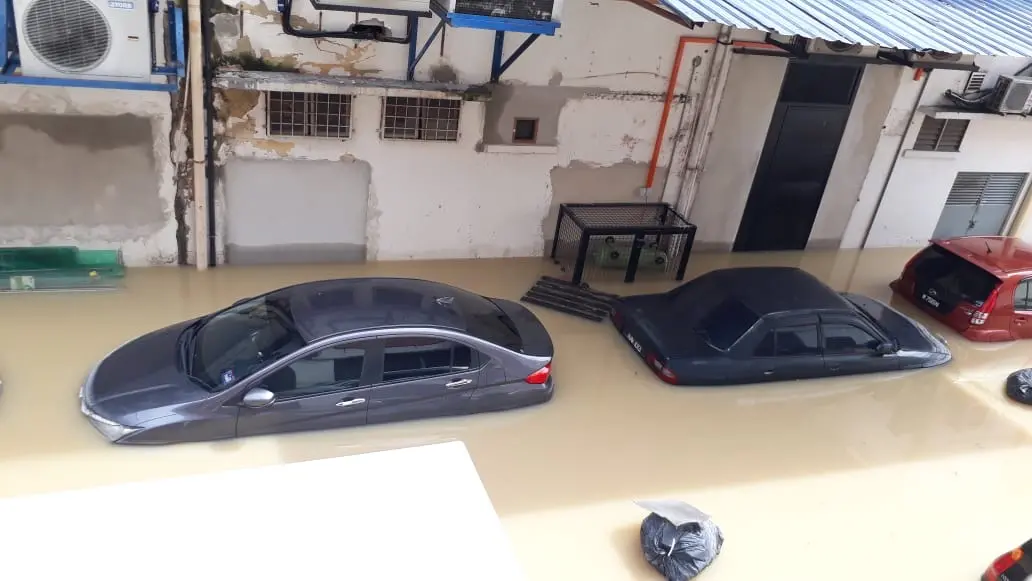
Roy narrates how he was ushered into the restaurant where he was eating as the water level rose: “Luckily they told us to stay upstairs. There was nothing, just tables and chairs, so overnight I had to sleep on the table and chairs. The water kept on rising and rising. It was so high and I was out of contact with my wife.”
Over the next two days, Roy could not call his wife because both electricity and cellphone services were out. He was stuck in the restaurant with 40 other customers.
For the next two days, the restaurant patrons relied on clothing and food donations from NGOs traveling to the area by boat. The restaurant workers also made simple meals for their trapped customers.
Eventually, when the water subsided, Roy decided to roam the area. He remembers, “I was walking around. This time it was clear: my wife was looking for me. She was happy she found my car. It was flooded up to the dashboard. I was sitting somewhere, and we bumped into each other. We were so happy.”
Finding solutions to climate change
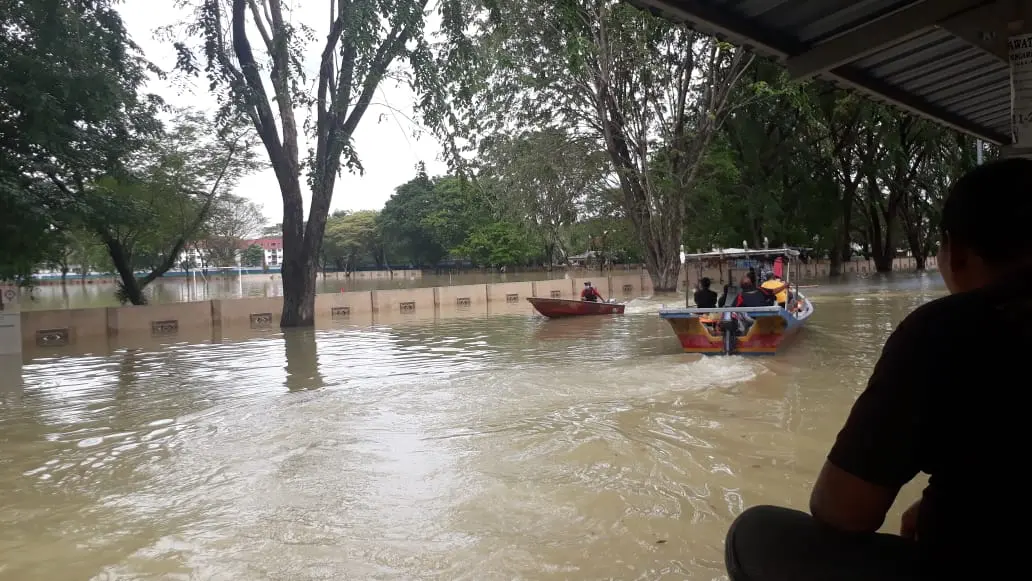
Dr. Siew emphasizes the importance of preserving forests in Malaysia. “Forests act as a natural "sponge" in absorbing rainwater," he explains. "They have a significant role to play in controlling flood problems as they cover the soil surface from erosion due to heavy rainfall and hold back the passage of rainwater to our streams and rivers.”
In fact, the Rimba Disclosure Project released a media statement urging the federal government to prioritize the protection of forests and to evaluate how deforestation affects ecologically-sensitive areas prone to landslides and human-animal conflict.
Siew tells the Pulitzer Center, “There is a need to reassess the country's climate adaptation plan to ensure that necessary resilience measures are in place for us to deal with the impacts of climate change. All stakeholder groups need to work together to take climate action with much urgency just like how we are dealing with the COVID-19 pandemic.”
However, elderly flood survivors are more likely to see climate change as an inevitable problem, and some find it beyond their immediate control, Roy says, “Because of climate change and the sudden heavy rainwater, there is so much water, I can’t really imagine [it].”
Siew elaborates on improving drainage systems. “Issues of waste clogging our drainage systems and causing water spills have also been raised during this flood episode. There needs to be a lot of public education and awareness on how to handle waste responsibly.”
Rebuilding home
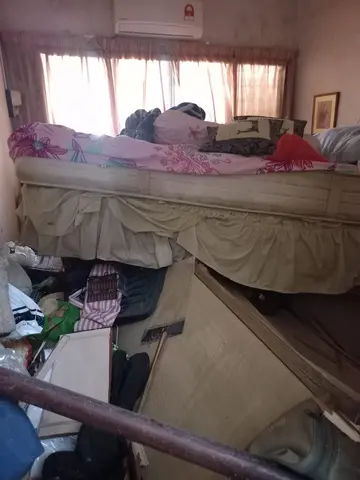
“It was a complete mess,” says Roy. He describes returning to a destroyed home, “Even when the bed floated and rested on the [bedroom] door, we can’t open the doors, we have to knock it off. We had to pull pieces of items out to clear the place and everything was in a mess. You can imagine the water flowing by the tables and chairs and cupboards and so forth. We had to throw it out. It was such a mess.”
Roy commented that the process of cleaning their house took about three months. During that time, they rented another place and took their belongings there. He felt it took a “long time to wash and clear all the things.”
It came as a surprise that their cats survived the floods. However, one of the three cats passed away because of the trauma endured. Roy says, “She got so scared, and I don’t know what happened. But two of them survive to this day.”
Roy estimates a high cost to repair their home. For example, they spent 10,000 Malaysian RM ($2,373 USD) just to repaint their house. They also spent money on replacing doors and buying new appliances such as refrigerators.
Despite the daunting path to recovery and rebuilding, the couple received furniture donations and cleaning help from volunteers, family, and friends. Roy says, “We can find out who are the true friends. We saw who was kind and saw kindness around.”
They plan to stay in the area. Roy hopes “it won't be like the last time.”
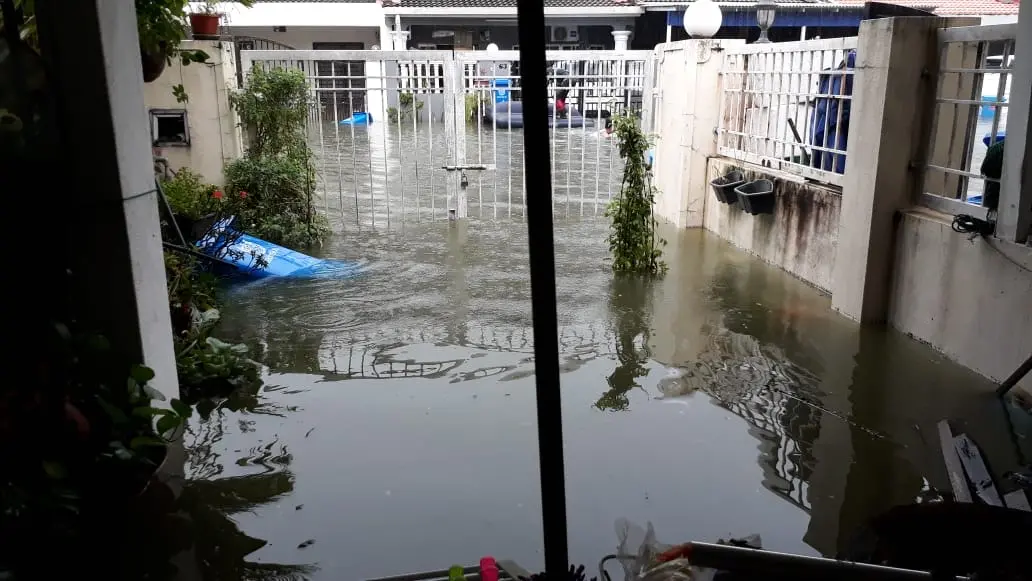
*All images courtesy of "Roy" who asked that his real name not be used.


